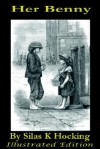Currently reading
The Lonely Sea: Collected Short Stories
Her Benny
Vedere din Parfumerie
Mysticism and Logic (Western Philosophy)
The Analects of Confucious
Pragmatism: A New Name for Some Old Ways of Thinking
Does Anything Eat Wasps?: And 101 Other Unsettling, Witty Answers to Questions You Never Thought You Wanted to Ask
Mutual Aid
City of Djinns: A Year in Delhi
The Brothers Karamazov
Tortilla Flat
 At least I can thank this book's financial success for inspiring the exceptional sequel "Cannery Row", many years later. I'd like to say that I saw Steinbeck's explicit reliance on tales from King Arthur. Maybe I got very close, noticing the parallel between a quest in the forest and scenes from a famous Monty Python movie. But even with epic chapter descriptions and formalized, old English proclamations from alleged paisanos, no, I didn't make the connection. The King Arthur connection is possibly the only explanation for Steinbeck's pulling his punches during one grand quest which was intended to enrich the Catholic church.
At least I can thank this book's financial success for inspiring the exceptional sequel "Cannery Row", many years later. I'd like to say that I saw Steinbeck's explicit reliance on tales from King Arthur. Maybe I got very close, noticing the parallel between a quest in the forest and scenes from a famous Monty Python movie. But even with epic chapter descriptions and formalized, old English proclamations from alleged paisanos, no, I didn't make the connection. The King Arthur connection is possibly the only explanation for Steinbeck's pulling his punches during one grand quest which was intended to enrich the Catholic church.I've had Mexican friends and girlfriends, but I was seldom reading these Steinbeck characters as Mexican. It was one chapter which ends with a woman made pregnant by any one of the paisano men which brought me up short, probably for the same reason a professor once said that Steinbeck's characters share women in a way which is not common to Mexican culture.
I might have forgiven the book its traces of race blindness if the ending weren't so sad and abrupt. I didn't in general see the depictions as racist. Rather, it seems like the epic form twisted into comedy isn't intended for rich character development on several levels.
I will say this: the Gaulish French who wrote the first tales of King Arthur, the Welsh knights under King Arthur, and parts of Spanish Iberia which were involved in the settlement of Mexico all have Celtic heritage. This Laissez-faire existential life of parties and defending one's honour seem to have a long Celtic heritage.
Addendum: I have to add that I typically find Steinbeck's forays into descriptive foliage really tiresome. Here, the proximity to the beach, along with the attendant flies, is emphasized a bit, but somehow his descriptions miss the point about beach bum life. The only exception being his observation that the incessant waves rolling in create an altered sense of time.
This book was the main inspiration for this essay:
https://www.goodreads.com/story/show/464252-comedies-constructed-from-fables-need-less-plot













